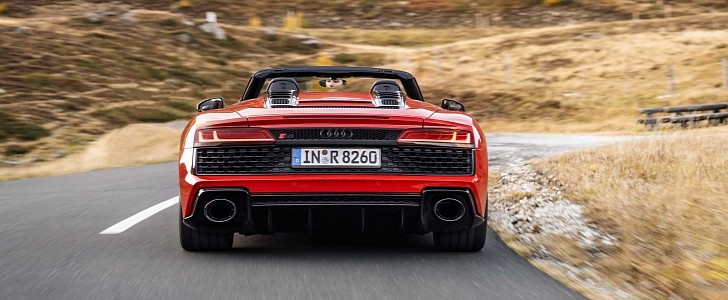May 2018 is when Volvo confirmed that it’s not going to develop a new generation of diesel engines. Many other automakers have followed suit, and seven major semi-truck brands decided to phase out diesel by 2040.
Internal combustion’s days are numbered in Europe, and there’s no escaping it. In addition to bans on the sale of new fossil-fuel cars, legislators in Brussels are putting the finishing touches on the EU-7 emissions standard. Described as a de facto ban on internal combustion engines by a trade association, the current draft of the regulation requires a decrease of 60 to 90 percent.
A very optimistic target by all accounts, this decrease of emissions has been lambasted by Volkswagen as complex and costly. Mercedes-Benz has also voiced its opposition to the EU-7 regulation, which it deems not feasible.
Audi, an important member of the Volkswagen Group, took a more drastic measure by stopping the development of next-generation internal combustion engines. Speaking to German newspaper Frankfurter Allgemeine Zeitung, head honcho Markus Duesmann made it clear that Audi will adapt existing combustion engines to EU-7 emission targets at great expense.
Experts and automakers alike claim that Euro 7 will be fatal for every player in the automotive industry. Promoting eco-friendly electric mobility is one thing, but advancing electric mobility while electric vehicles are still expensive and the charging infrastructure still isn’t up to snuff is wishful thinking at best.
Even though electric vehicles are the way forward for the four-ringed automaker in Europe, combustion-engined cars won’t disappear from the lineup anytime soon. More to the point, the Ingolstadt-based giant will continue to sell Euro 6 and 7 vehicles in various parts of the world where the legislation is milder, and the charging infrastructure isn’t developed.
Audi, together with Porsche, is also looking into synthetic fuels that burn cleaner than gasoline and diesel. There is, however, a problem with synthetic fuels because mass adoption is expected to happen in 2030 at the earliest.
A very optimistic target by all accounts, this decrease of emissions has been lambasted by Volkswagen as complex and costly. Mercedes-Benz has also voiced its opposition to the EU-7 regulation, which it deems not feasible.
Audi, an important member of the Volkswagen Group, took a more drastic measure by stopping the development of next-generation internal combustion engines. Speaking to German newspaper Frankfurter Allgemeine Zeitung, head honcho Markus Duesmann made it clear that Audi will adapt existing combustion engines to EU-7 emission targets at great expense.
Experts and automakers alike claim that Euro 7 will be fatal for every player in the automotive industry. Promoting eco-friendly electric mobility is one thing, but advancing electric mobility while electric vehicles are still expensive and the charging infrastructure still isn’t up to snuff is wishful thinking at best.
Even though electric vehicles are the way forward for the four-ringed automaker in Europe, combustion-engined cars won’t disappear from the lineup anytime soon. More to the point, the Ingolstadt-based giant will continue to sell Euro 6 and 7 vehicles in various parts of the world where the legislation is milder, and the charging infrastructure isn’t developed.
Audi, together with Porsche, is also looking into synthetic fuels that burn cleaner than gasoline and diesel. There is, however, a problem with synthetic fuels because mass adoption is expected to happen in 2030 at the earliest.







































